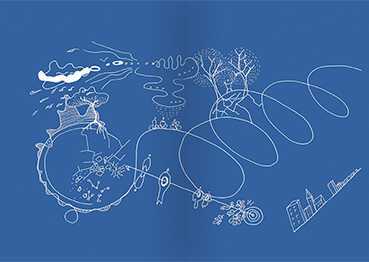

The project La didactique du paysage, enjeu citoyen. A collective approach to experimentation began in January 2020 and will run for four years, thanks to funding from the Swiss National Science Foundation (SNSF).
Awareness-raising, mediation and participation initiatives on and with the landscape have been multiplying over the last twenty years. Professionals working in the fields of planning and landscape have been asking questions about the conception of these approaches, the tools and resources required, as well as their effectiveness, legitimacy, limitations and failures. Specialised courses in mediation have emerged, broadening the questioning to include the new skills that these activities require. At the same time, the introduction of education for sustainable development into European school systems has highlighted the challenges of training (future) citizens who are able and ready to commit to these approaches, express themselves, argue, take a position on the project and take part - or not - in collective decision-making.
The aim of this research project is to analyse situations involving awareness-raising, mediation and landscape education from a didactic angle: what knowledge is constructed and circulated? What skills are mobilised? What learning is expected? What resistance and obstacles are encountered? The aim is to compare the training needs and challenges of both the (future) citizen and the (future) mediator.
The current programme aims to provide a detailed, documented analysis of teaching activities. We will seek to collect empirical material that will enable these approaches to be studied in depth. This programme is centred on experimentation. It is based on the creation of a network bringing together the team and partners involved in landscape mediation activities in various fields.
The aim is to co-design mediation and training schemes, test them in situ, observe and evaluate them. These approaches and resources, levers for renewing landscape-based training with a view to the aims of citizenship, are offered to the various players involved (teachers, trainers, associations, local players and decision-makers, etc.).
Project partner(s)
Project leader - team
Natacha Guillaumont
(HEPIA),
Laurence Crémel
(HEPIA),
Molly Fiero
(HEPIA)
